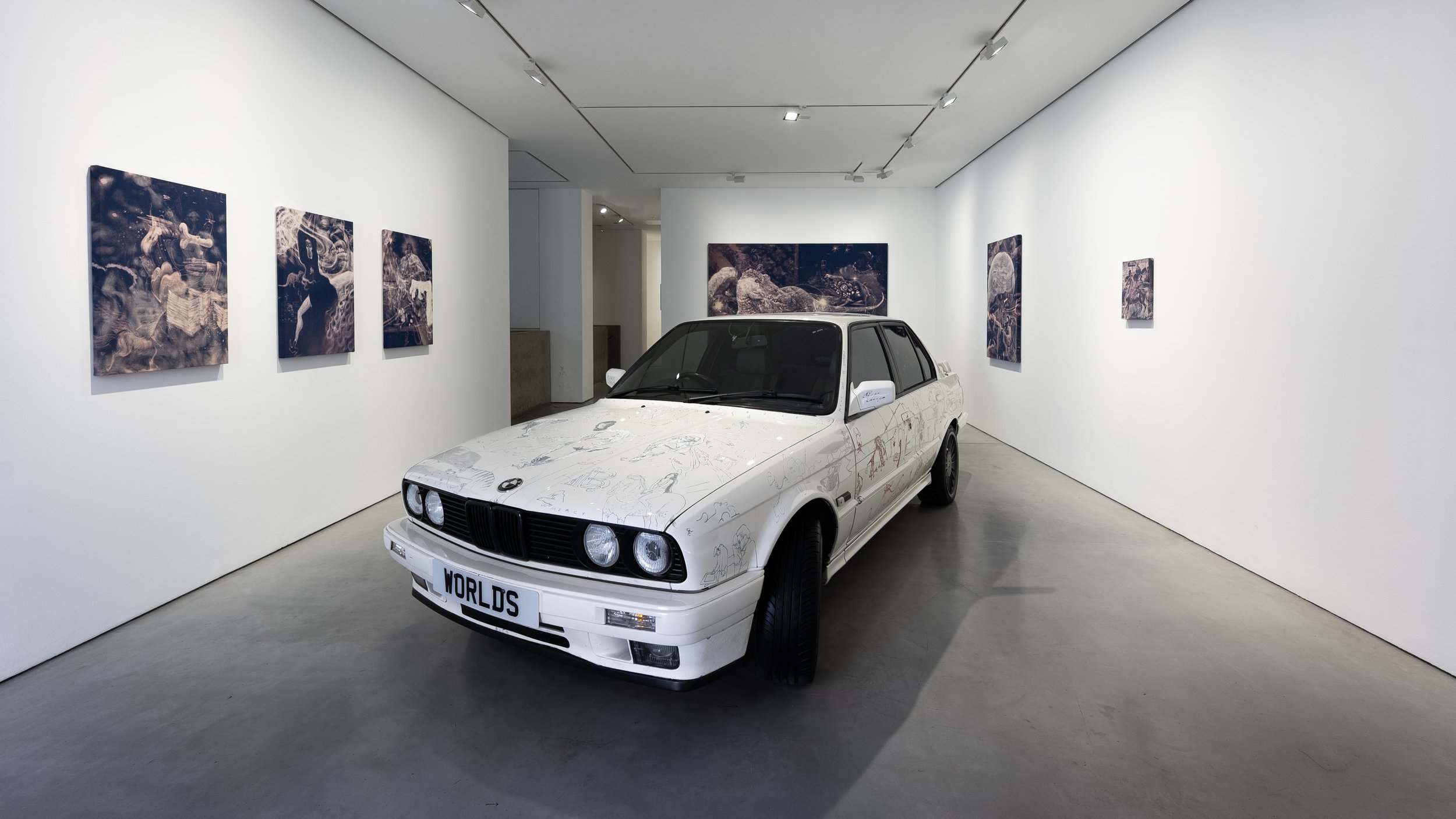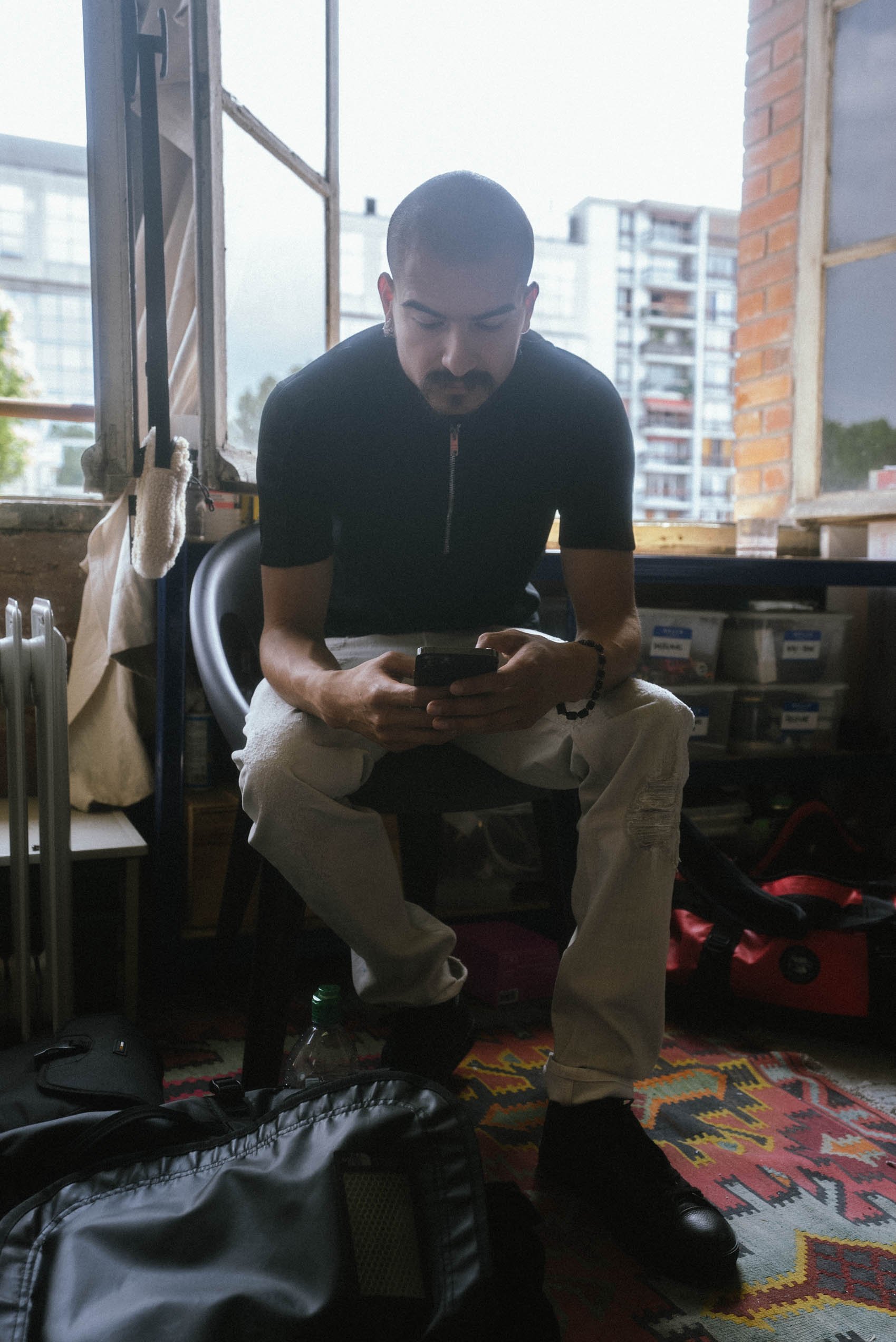CHITO X WU YUÉ
Cross-genre collaborations are fairly common in the art world. Naturally fashion houses are drawn to collaborating with artists on the front lines so as to set the cultural (and let’s be honest, to stay relevant). Mexican American CHITO and Chinese-born Parisian Wu Yué—two of most prolific visual artists out there at the minute—have done just that in recent seasons: respectively, collaborating with Veilance, Givenchy, and Supreme; and Cartier, Comme des Garçons, and New Balance. Besides both securing the bag when opportunity arose, CHITO and Wu Yué have for the first time publicly joined forces to hold Always Change, Never Change—an exhibition in which they did what they do best: their own thing.
Held at the recently-founded London-based OMNI, the duo took over the gallery in a true collaborative effort, sharing the space in such a way that their own distinctive yet colliding street-themed art practice shone separately and collectively as well. “OMNI hit me up to run an exhibition and as I was working in Yue’s studio and liked the work we made together, I invited him to do it with me,” CHITO commented. “I like Yue’s storytelling. He connects the dots in a special way.” It ends up that admiration here is mutual. “I admire CHITO’s fearlessness, he isn’t bound by rules or codes like I have in my work. The way he builds and layers and thinks of his imagery is deeply sophisticated. The pureness and simplicity of his work really moves me,” Wu said.
Running through the exhibition, CHITO’s now well-known spray-can cartoon-like Distance Pups were displayed in arrays of canvases and wall-mounted sculptures. Further concreting the artist’s maverick, malevolent spirit, a first ever concrete-made free-standing sculpture, dubbed CHITO Pup, was part of the show, too.
Elsewhere, Wu carved and engraved the surface of a white BMW E30 with characters and scenes that commented the discomforting dynamics of societal flaws and racial injustices the artist has experienced growing up as the child of immigrants in the early 1990s Paris. Featuring depictions of painter Gustave Caillebotte’s The Floor Scrapers, the Policing the Black Man book cover, and Cher on a horse, among other things, the car is a melting pot of great ideas and less serious ideas with elements coming from art history, Wu’s personal photo archives, and the internet.
“Engraving freehand on an industrial object is part of the freedom I’m striving for,” Wu said. “I feel that, as a figurative artist of today, I should be using everything available to me without limitation.”
The Always Change, Never Change exhibition will be on display at OMNI through August 6th, 2022.














